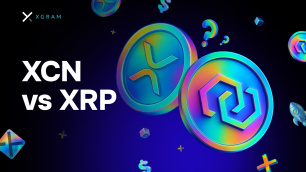Blog
Tu fuente de las últimas noticias sobre criptomonedas: tendencias, análisis y movimientos del mercado.
Publicaciones: 94


Política Editorial del Blog de xgram.io


Cómo vender Tron TRX sin perder tiempo ni dinero


Formas sencillas de vender Toncoin: opciones, comisiones y seguridad


¿Qué es una seed phrase?


¿12 o 24 palabras? Qué seed phrase es mejor para tu billetera cripto


Cómo enviar Bitcoin a otro monedero


¿Cómo crear una billetera de criptomonedas?


Cómo minar LTC sin jerga cripto confusa




